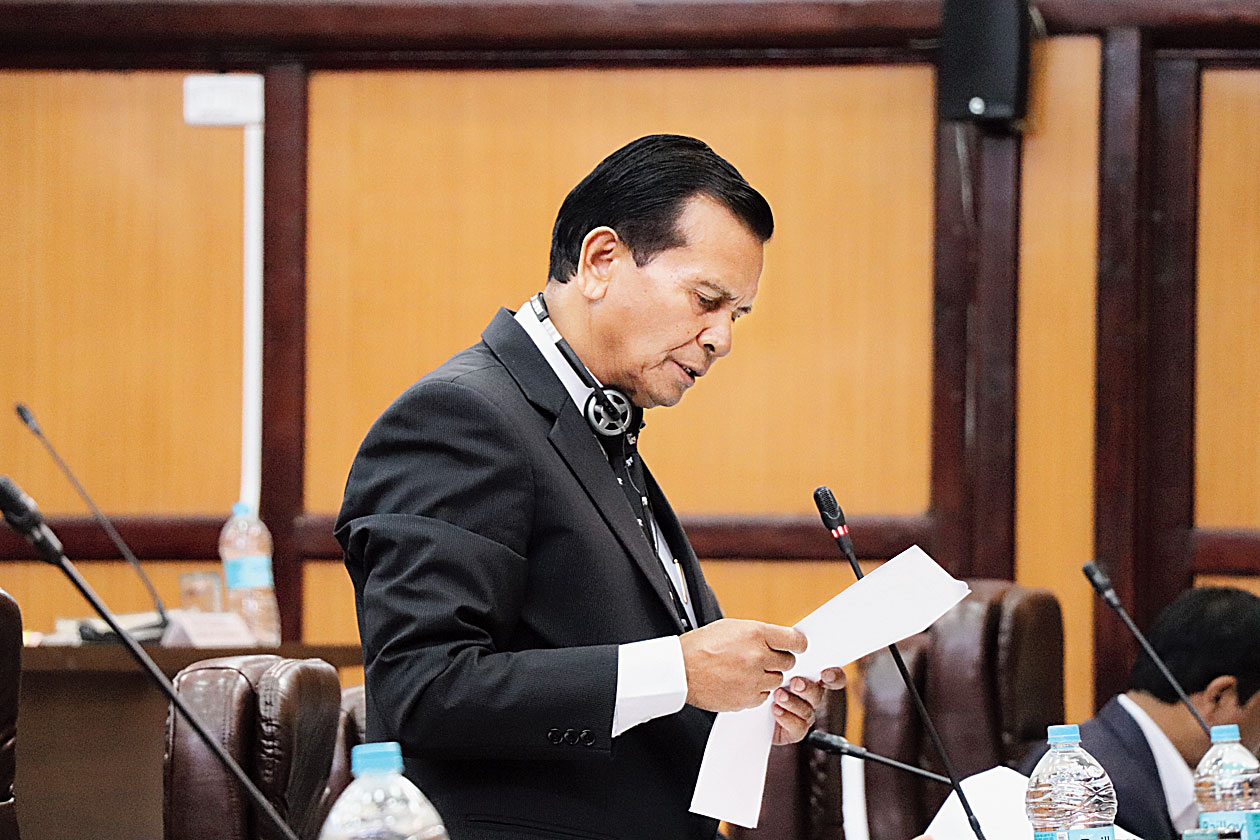The Khasi Hills Autonomous District Council on Thursday introduced a bill to restrict the entry of people from other parts of the country into its territory without a permit, the first such legislation in Meghalaya.
On the first day of a two-day special session, council chief H.S. Shylla introduced the Khasi Hills Autonomous District (inner-line as adapted from the Eastern Frontier Regulation, 1873) Regulation Bill, 2018.
The council also unanimously resolved to urge governor Tathagata Roy to apply the provisions of the Bengal Eastern Frontier Regulation, 1873, from where the inner-line permit (ILP) emanates, in the bill.
The demand for implementation of ILP in the state had intensified in 2013 when pressure groups asked the then Mukul Sangma government to adopt it. However, he did not give in to the pressure.
Shylla said an “alarming situation” had developed in the council area after the update of National Register of Citizens (NRC) in Assam, resulting in “mass migration” of “illegal” immigrants.
“The unchecked migration into the district council is posing a grave danger for the ethnic Khasi tribe,” he said. “There are many small indigenous groups which have vanished,” he added. Shylla said the Khasi population was only 16 lakh while over 40 lakh applicants had been left out of the draft NRC in Assam.
Although the Constitution guarantees free movement and residence within the territory of India, he said it is limited by Article 19 (5), which provides for imposition of reasonable restrictions by the state for the interest of Scheduled Tribes. The council chief also said the Bengal Eastern Frontier Regulation, 1873, is included in the United Khasi-Jaiñtia Hills District (Application of Laws) Regulation, 1952, which is in force in the Khasi district council.
If the council passes the bill and the governor accepts the resolution and gives assent to the bill, it will come into force on publication in the official gazette.
The bill stipulates “it shall be lawful for the executive committee of the Khasi Hills Autonomous District Council to prescribe, and from time to time, to alter by notification in the Meghalaya gazette, a line to be called ‘the inner line’ in the Khasi Hills Autonomous District”.
The council has jurisdiction over scheduled areas within East Khasi Hills, West Khasi Hills, South West Khasi Hills and Ri Bhoi districts.
The bill prescribes that the council’s executive committee may prohibit all citizens or any class of citizens, or any person residing in or passing through such extraneous districts from going beyond such “line” without a pass under the hand and seal of the chief executive member or any authorised official.
Those who cross the “inner line” without a pass or permit will have to, if convicted, face imprisonment which may extend to a year or a fine not exceeding Rs 1,000 or both. It stipulates that the chief executive member may authorise the local traditional chiefs to arrest any person violating the regulation.
Further, it would not be lawful for any person, who is not a member of the indigenous Khasi community, to acquire any interest in land or its product beyond the “inner line” without the sanction of the competent authority under the Meghalaya Transfer of Land (Regulation) Act, 1971. However, members of the Khasi and Garo Scheduled Tribes of the district council and of Meghalaya will be excluded from this prohibition.
Shylla said the council had received a letter from the state government in April 2017, asking it to act on a memorandum from a pressure group demanding implementation of ILP. The letter was also sent to Jaiñtia Hills and Garo Hills autonomous district councils.
There are reports that the Jaiñtia Hills Autonomous District Council will come up with a similar regulation.











